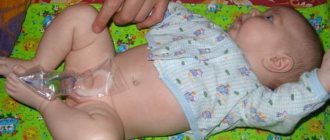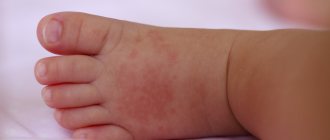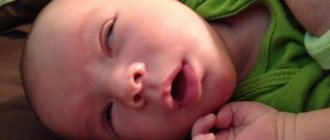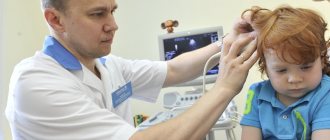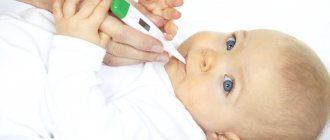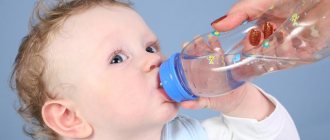general information
A child is not an adult. The main functions of the internal organ systems are significantly different. What is usually normal for an adult may be pathological for a child. Anatomically and functionally, the kidneys of a child and an adult have many differences. The younger the child, the more pronounced this difference is. By the time the baby is born, his excretory system has not yet been fully formed.
The kidneys are a serious mechanism. Through these organs, the urinary system balances fluids and minerals in the body and removes metabolic end products and foreign chemical compounds from the blood. In addition, the kidneys take an active part in maintaining normal blood pressure, the formation of glucose and in regulating the production of red cells by the bone marrow.
The urinary system of a small child is working at the limit of its capabilities. Against the background of complete health, the kidneys cope with their direct responsibilities, but with minor failures, disturbances are possible.
Normal urination in children of different ages
Features of the structure and functioning of the urinary system in young children determine the frequency of urination depending on age. For example, a baby usually needs about 25 diapers per day. The exception is children in the first week of life. Their frequency of urination is negligible - no more than 5 times a day. This is due to high fluid losses and insufficient supply of breast milk. By 12 months, the child begins to urinate approximately 15-17 times a day. With age, the amount of urination usually decreases. At three years old, children go to the toilet no more than eight times a day, and at nine years old - about six times. Teenagers urinate no more than five times a day.
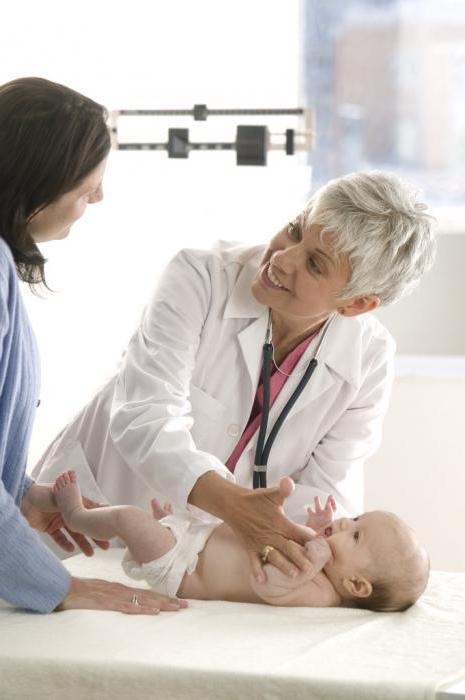
Anything that exceeds the listed indicators can be considered frequent urination. However, small deviations from the norm are always allowed. If a six-year-old child urinated 6 times today and 9 tomorrow, there is no reason to panic. It is necessary to analyze possible changes in the baby’s life. For example, after eating fruit, urination may increase without any pathology. On the other hand, changes in these indicators often indicate health problems. Next, we will consider the main reasons for frequent urination in children without pain.
Norm
The structural and functional features of the kidneys and bladder in young children lead to the fact that the frequency of urination varies depending on age and, in general, is greater than in adults. So, a baby in the first months of life will need about 25 disposable diapers per day (with the exception of children in the first week of life - in the first five days the frequency of urination is low - only 4-5 times a day; this is due to the high fluid loss of the child and the low supply of breast milk) , and by the age of one year the child urinates approximately 15-16 times. With age, the number of urinations decreases: at 1-3 years old the number of urinations is about 10 times a day, at 3-6 years old - 6-8 times a day, from 6 to 9 years old - 5-6 times, and older children urinate as usually no more than 4-5 times a day. Moreover, most of the urine is excreted during the day. Anything greater than these numbers can be considered frequent urination. As a rule, in medicine deviations from normal values within small limits are always allowed. That is, if a 6-year-old child urinates 6 times a day today and 9 times tomorrow, it’s unlikely that you should immediately panic. And be sure to pay attention to changes in conditions (environmental factors, nutrition, etc.): against the background of a large amount of fruit eaten (containing a lot of liquid - watermelon, melon, pears, etc.), diuresis (daily amount of urine) may increase without any pathology. But do not forget that a change in the frequency of urination may be the first symptom of trouble, so even in the era of diapers, mothers need to be careful about this parameter.
Not the norm
In addition to frequent urination, the simultaneous presence of other symptoms is of great importance. What could it be and what should mother pay attention to?
Pain when urinating. Occurs due to inflammation in the lower urinary tract (urethra or bladder), the release of large salt crystals (small stones), and inflammation of the external genital organs. Moreover, if a child of 3-7 years old can actively complain to his mother (the baby may try to delay the painful process of urination), then a baby at the age of several months will wince, grunt or even cry (depending on the severity of the pain) at the moment (or possibly before and/or after) urination.
False calls. As the name implies, the child feels the urge to urinate (perhaps even a few minutes after the previous trip to the toilet), but the urge turns out to be false (there is no urine).
Pain in the abdomen (lower back). If it is easier in this sense with a child 3-7 years old (although many children, when asked “where it hurts,” will point to the navel area), then asking a baby about the presence or absence of pain is quite difficult. There may be causeless (naturally, at first glance) crying, kicking of the legs, and a painful grimace on the face.
The pain can be one- or two-sided, of a different nature (dull, aching, cramping, etc.), observed when jumping, running, dancing.
Thirst combined with increased urine output. Such manifestations, of course, can occur in healthy children and adults (in the example already mentioned above - when eating a large amount of fruit), and nevertheless require control (consultation with a doctor, a general urine test and blood test for sugar to exclude diabetes mellitus, one of the signs of which is increased urine output).
Enuresis, urinary incontinence. Enuresis usually includes cases of nighttime and daytime urinary incontinence in children over 4-5 years of age. Urinary incontinence is cases of spontaneous urination (the child does not feel the urge to urinate), urinary incontinence - the child wanted to urinate, but “did not have time” to get to the toilet. Another unfavorable symptom is the constant leakage of urine drop by drop.
Possible causes of frequent urination include urinary tract infections (urethritis - inflammation of the urethra, cystitis - inflammation of the bladder, pyelonephritis - inflammation of the kidney tissue), malformations of the urinary tract, pathology of the nervous system, and mental illness.
Common complaints accompanying the inflammatory process (cystitis, pyelonephritis) are weakness, malaise, loss of appetite, headache, sleep disturbance; in infants - regurgitation, vomiting, increased or decreased bowel movements. An increase in body temperature above 37° C is characteristic of inflammatory diseases of the urinary system. Pay special attention to the rise in temperature for no apparent reason to high numbers within one day, followed by a decrease to normal. This symptom may be evidence of vesicoureteral reflux, a condition in which urine flows upward from the bladder into the ureters or even into the kidneys. Longer rises in temperature in the absence of a runny nose, cough, etc., that is, in the absence of symptoms of a respiratory disease, can be a sign of a urinary infection (a high temperature in this case, as a rule, is difficult to “bring down” antipyretics, but it will respond to a properly selected antibiotic positive). But under no circumstances self-medicate! You should consult a doctor.
Change in urine color. A baby's urine is usually pale yellow (since it is not very concentrated); at an older age, the urine has a straw-yellow color (if there is a lot of drinking, it is lighter). The appearance of a red tint in urine can be either normal (when consuming beets, cherries, red food dyes, or some medications), or it can be a serious sign of the presence of blood (more precisely, red blood cells) in the urine, for example, with a kidney disease such as glomerulonephritis - a chronic immunoinflammatory disease with damage to the renal glomeruli located directly in the kidney tissue. Pale, almost colorless urine in combination with increased excretion and thirst is a suspicion of diabetes mellitus; another unpleasant assumption is impaired renal function.
What is physiological pollakiuria?
The causes of frequent urination may be harmless and not related to illness. In this case, physiological pollakiuria is usually meant. Its development is due to the following factors.
- Drinking large amounts of liquid. When a child drinks a lot, the urge to go to the toilet becomes more frequent. Parents should pay attention to the reasons for increased fluid intake. It’s one thing if a child in the family is accustomed to drinking mineral water every day or feels thirsty in hot weather, or after physical activity. If your baby constantly asks for water and pees a lot for no reason, this may indicate a disease such as diabetes.
- Taking medications with a pronounced diuretic effect. These include diuretics, antiemetics and antihistamines.
- Hypothermia. Frequent urination in a child without pain is accompanied by a reflex spasm of the kidney vessels. After warming, pollakiuria stops.
- Eating foods that have a diuretic effect (lingonberries, watermelon, cucumbers, green tea). Most of them contain a large amount of water, so the number of trips to the toilet increases.
- Frequent urination in a 4-year-old child is possible due to stress and overexcitement. Against their background, adrenaline is released in the body, which affects the excitability of the bladder and the excretion of the fluid itself. Therefore, the child often visits the toilet, but urinates in small portions. This is a temporary condition that goes away on its own.
Physiological pollakiuria is completely safe and does not require specific treatment. Urination returns to normal after the provoking factor is eliminated.
Parents are not always able to independently determine the cause of such a disorder. In some cases, frequent urination in a child without pain is a symptom of a serious illness. These may be psychosomatic disorders, pathologies of the endocrine and nervous systems. The disorder is usually accompanied by fever, excessive sweating and refusal to eat. Let's look at the main diseases that cause frequent urination in more detail.
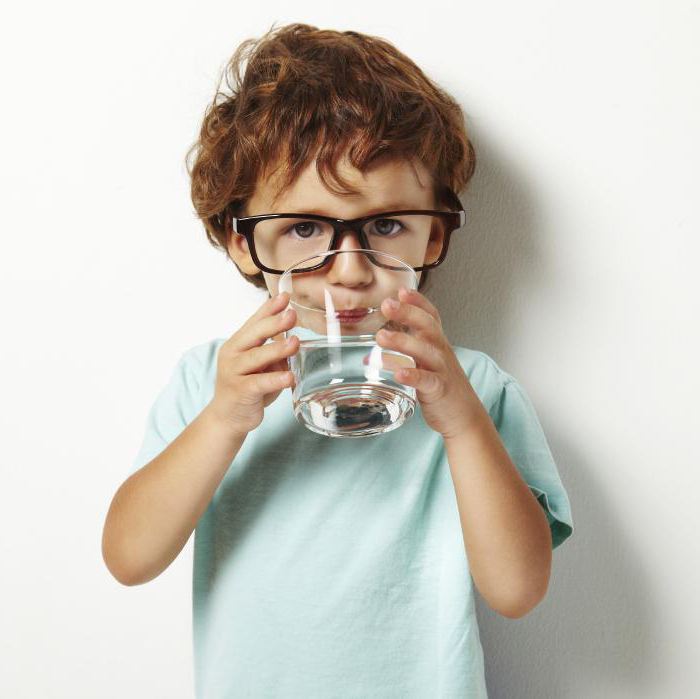
Causes of frequent urination in children
In some cases, the causes of frequent urination in children may be harmless and not related to illness. This is called physiological pollakiuria and is caused by the following factors:
- Drinking large amounts of liquid. If a child drinks a lot and eats juicy fruits, he urinates more often. But if it is not customary in the family to drink water constantly and often, and the baby constantly asks for a drink and often goes to the toilet, this may be a sign of diabetes.
- Taking diuretics, medications where the diuretic effect is considered a side effect, for example, antiallergic medications.
- Products that have a diuretic effect also cause frequent urination in boys. These are not only watermelons, but also green tea, grapes, melons, and berries.
- Hypothermia causes spasm of the kidney vessels and accelerates the filtration of urine, which leads to an increase in the frequency of trips to the toilet.
- Stress, an overexcited state - this is the release of adrenaline, which increases urine production and increases the excitability of the bladder. As a rule, stress is the cause of frequent urination in adolescents experiencing emotional fluctuations. A child may want to go to the toilet constantly, but urinate in very small portions. The condition is temporary and goes away on its own when you calm down.
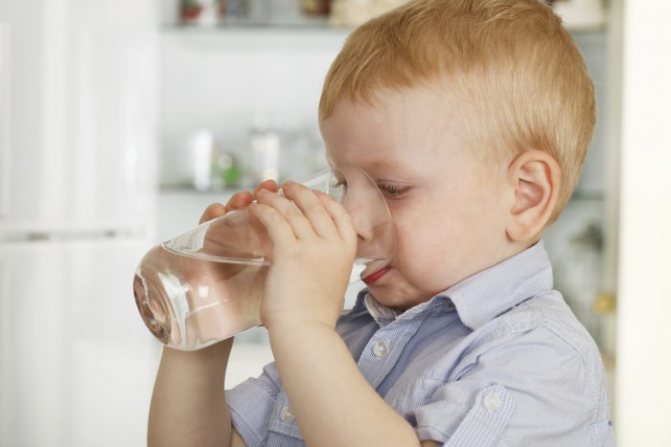
Physiological pollakiuria is not dangerous, and it should not be treated: the rhythm of the urge returns to normal when the irritating factor is eliminated. But if a boy’s frequent urge to urinate is accompanied by additional symptoms, this is a reason to think about going to the doctor:
- Accompanying urination with pain, cutting, burning;
- Urine comes out involuntarily - incontinence;
- Body temperature rises, sweating increases, appetite decreases, the child loses weight;
- The baby becomes whiny, irritable, and often capricious.
Let’s take a closer look at what diseases frequent urination in boys may indicate.
Erosion on the penis: causes, symptoms and treatment
Pathology of the kidneys, bladder, urethra
There are a number of diseases that lead to an increase in the number of trips to the toilet:
- Cystitis. Inflammation of the bladder is characterized by acute pain in the lower abdomen, but overall health may be normal.
- Urethritis is accompanied by severe burning and stinging during the evacuation of urine.
- Pyelonephritis can cause frequent urination in boys without pain, the cause is the inflammatory process of the renal pelvis. Additional symptoms: lower back pain, weakness, the child may experience feverish conditions.
- Abnormal development of the bladder - reduced volume.
- Glomerulonephritis - the disease is accompanied by vomiting, temperature fluctuations, and pain.
- Urolithiasis - the passage of stones is always manifested by burning, temperature, pain.
- Other hereditary or acquired pathologies: kidney diabetes, tubulopathies, etc.
Neurogenic bladder dysfunction of the hyperreflex type
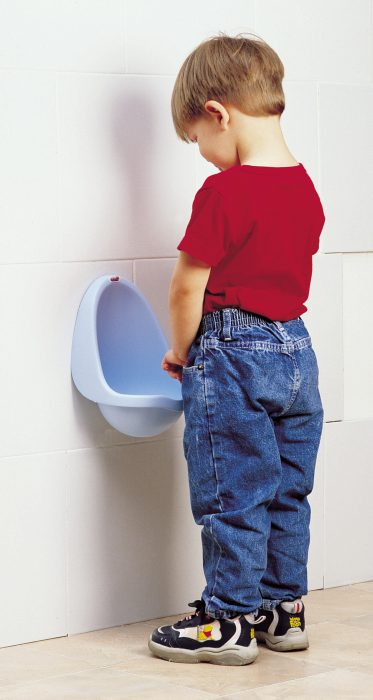
This is a pathology characterized by a violation of the basic functions of the bladder, developing due to a delay in the development of the nerve centers responsible for the functioning of the urinary system. The disease manifests itself without signs of inflammation or pain, but frequent urination in a boy of 7 years or older intensifies against the background of colds. Additional symptoms: enuresis, urinary incontinence without the onset of stressful situations.
Pathologies of the endocrine system
This can be diabetes mellitus or diabetes insipidus. The reason for the first is a disruption in the process of glucose absorption and its excess accumulation in the blood. The main symptoms: thirst, high appetite, while the child loses weight, constant trips to the toilet are accompanied by the release of large portions of liquid. There is a tendency to purulent skin lesions, conjunctivitis, the skin is often affected by a rash and itches.
Diabetes insipidus is a consequence of dysfunction of the hypothalamus and pituitary gland, which produce the hormone vasopressin. The hormone is responsible for the reabsorption of fluid when blood is filtered by the kidneys. A deficiency of the element leads to an increase in the accumulation of urine and its frequent evacuation. The disease is rare, symptoms: constant thirst and going to the toilet without pain or burning. The volume of urine during evacuation is large.
Central nervous system diseases
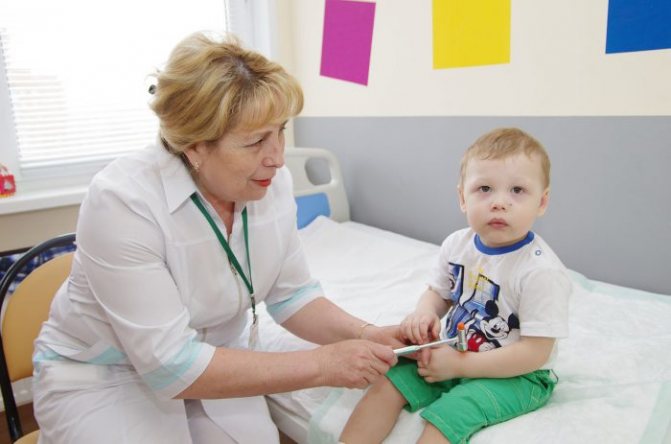
The slightest break in the chain of impulses from the brain through the spinal cord to the nerve endings in the bladder leads to a disruption in the frequency of trips to the toilet. Sometimes the bladder empties spontaneously; even partial filling causes the desire to urinate. This frequent urination is observed in teenage boys during puberty, and the cause can also be a head injury, spinal cord, or degenerative diseases affecting the cerebrospinal fluid.
External pressure on the bladder
Tumors in the pelvic area cause external pressure on the bladder and lead to a decrease in the volume of urine accumulation, and, accordingly, to an increase in the number of trips to the toilet.
Appointment with a urologist: preparation for examination, diagnosis and treatment measures
Neuroses, psychosomatic disorders
Overexcitement causes the boy to constantly or very often ask to go to the toilet. Neurasthenia, vegetative-vascular dystonia, and other pathologies can appear in adolescents and young children due to stressful situations. It is not difficult to notice a psychological failure; the pathology can be distinguished from ordinary physiological pollakiuria by mood swings, increased moodiness, and tearfulness. Very often, drip or small portion urination of increased frequency is observed in a child before important events: performances, fights, going to the doctor. Pathology can be caused by fear of the dark, screaming, and other phobias.
Pathology of the endocrine system
Frequent urination in a child without pain can be a symptom of diabetes, both diabetes mellitus and diabetes insipidus.
In the first case, the disease develops due to impaired absorption of glucose, which does not reach the cells in full. Its primary symptoms are constant thirst and excessive appetite. In addition, children experience inflammatory and purulent lesions of the skin and eye area.
Diabetes insipidus occurs due to dysfunction of the hypothalamus, which is responsible for the production of the hormone vasopressin. It allows water to be reabsorbed as blood is filtered through the kidneys. Frequent urination in a child 3 years of age or older may be due to a deficiency of this hormone.
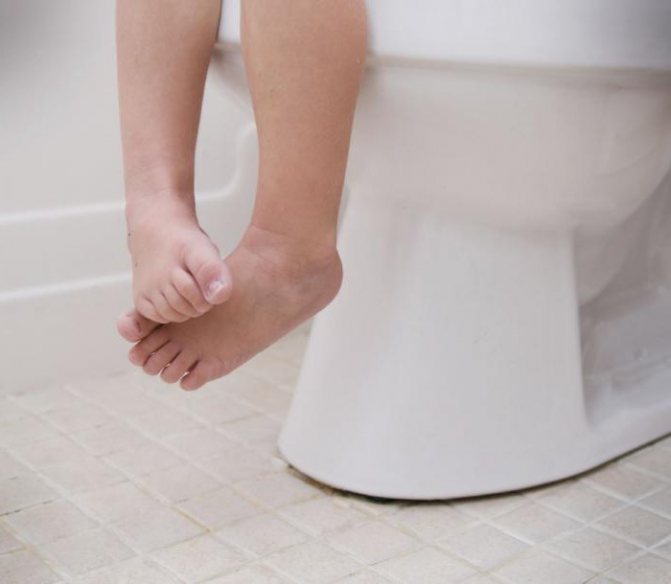
Neuroses and psychosomatic disorders
As noted above, stress and overstimulation often provoke frequent urination in children. The causes of this disorder may also be hidden in neurasthenia and various psychosomatic conditions. Physiological pollakiuria due to stress is a temporary phenomenon, the duration of which should not exceed 10 hours. In the case of a pathology of a psychosomatic nature, symptoms are observed constantly, but they may be less pronounced and supplemented by mood swings and aggressiveness.
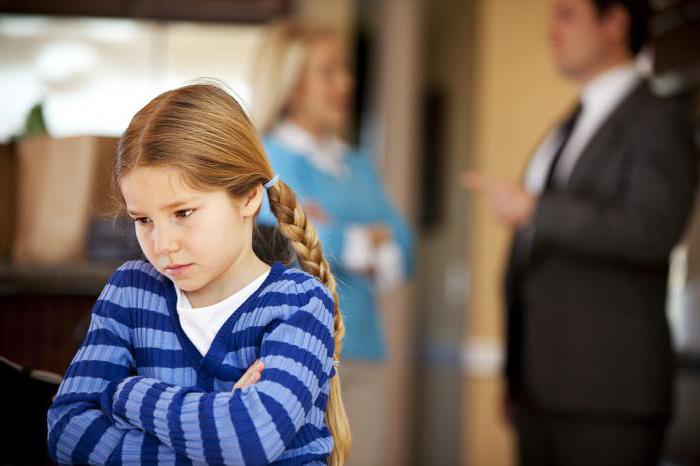
Examination to confirm the diagnosis
To identify the presence of a particular disease, it is necessary to do a urine test. It is not recommended to collect it in the evening. Also, do not store the liquid in the refrigerator for more than 12 hours, as the test results may be incorrect.
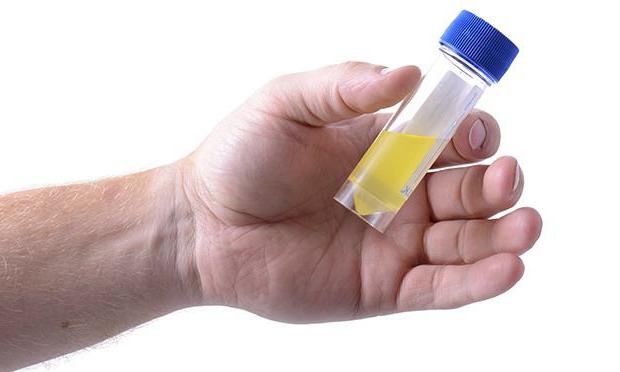
If during the diagnostic process a large number of microbes are found in the urine, additional research will be required to determine sensitivity to antibiotics. An ultrasound is performed to identify signs of inflammation or abnormal structure of the bladder. A blood test is necessary to study hormones, assess kidney function, and determine glucose levels. Sometimes consultation with specialized specialists (nephrologist, endocrinologist) is required.
Treatment Options
Based on the examination results, the doctor can determine what is causing frequent urination in children and the causes of the pathological disorder. After this, the pediatrician prescribes appropriate treatment.
For physiological pollakiuria, specific therapy is not used. All other causes require treatment in a hospital setting, where it is possible to fully diagnose diseases and monitor the child’s condition around the clock.
The course of therapy is prescribed in accordance with the diagnosis, since pathological pollakiuria cannot be overcome without affecting the underlying disease. The selection of specific drugs remains up to the doctor. The range of remedies used for frequent urination in children is very wide. For example, for neuroses, sedatives are prescribed; for the treatment of diabetes mellitus, insulin is required. In case of dysfunction of the central nervous system, surgical intervention may be required.
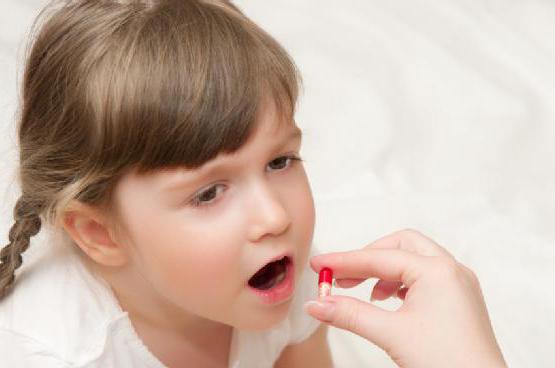
Parents should understand that pollakiuria is a fairly serious disorder that can be caused by dangerous diseases. If a child's fever and frequent urination persist for several hours, it is necessary to call a team of medical professionals. Self-treatment of this pathology is not recommended.
Causes
As soon as difficulties arise with urine output, you need to contact a specialist. The following illnesses can cause difficulty urinating in a teenager:
- cystitis or urethritis of any form;
- neurogenic bladder dysfunction;
- spasm of the urethral sphincter due to neurological pathologies;
- when the walls of the bladder are irritated by salts and sand;
- for inflammatory kidney diseases;
- congenital developmental anomalies that appeared during puberty;
- endocrine diseases affecting the adrenal glands, thyroid gland, pituitary gland;
- metabolic disorders (diabetes mellitus);
- hormonal disruptions, which are observed in adolescents;
- migraines with spasms of blood vessels in the neck and head;
- neoplasms affecting the urinary system;
The above reasons apply to both sexes. If we talk about girls, then the following factors should be added:
- developmental anomalies when uterine bending is diagnosed;
- gynecological diseases, most often adnexitis;
- inflammation of the pelvic organs.
When using some drugs, side effects may occur that affect the condition of the urethra and sphincters. Especially when it comes to sleeping pills and tranquilizers. Diuretic medications can also have an effect if they are prescribed incorrectly or if they are taken without the supervision of a specialist.
The urethra can become blocked for a variety of reasons. Either during medical procedures or due to injury. Increased pressure in the peritoneum sometimes causes difficulty urinating in a teenager.
As for other reasons not related to diseases, the following are usually identified:
- hormonal changes that always accompany adolescence;
- spasms due to emotional stress;
- hypothermia of the body, causing spasms of the urethra (reflex);
- constant stress and tension;
- postponing a visit to the toilet, causing overextension and reflex spasm;
- the predominance of spicy, sour, salty and sour foods in food that irritate the bladder;
Features by gender
The urethra in boys is narrow but long. At the entrance is the prostate gland, which protects the genitourinary system from infections. In girls, like in women, the urethra is wider and shorter. The infection rises fairly quickly, causing inflammation.
Difficulty urinating in a teenager is often diagnosed when the urethra is swollen due to a bacterial infection. Inflammation causes swelling of the mucous membrane, making it difficult for urine to come out. At the same time, pain and stinging appear, and the body temperature also rises. Unpleasant sensations usually occur at the beginning and end of urination.
If we talk about girls, then every month they may experience changes due to hormonal fluctuations caused by the menstrual cycle. The uterus and bladder are “neighbors.” Next to them is the intestines. That is why, when investigating a problem, a complete examination should be carried out.
In addition, early sexual life makes its own adjustments. In addition to infection, the body adapts to new conditions and the urinary system may respond with problems with urination. This especially happens immediately after sexual intercourse.
Prevention measures
Of course, it is impossible to insure a child against diseases of the urinary system. However, a number of preventive measures make it possible to timely identify pathology and prevent the occurrence of unpleasant complications.
- Be extremely attentive to the child’s condition and possible manifestations of the disease.
- Do not neglect scheduled visits to the doctor. Children under six months old should be examined by a pediatrician every month, up to three years old - every three months, after four years old - once every six months.
- Make sure that your child does not catch a cold; forbid him to sit on cold benches or damp ground.
- Pediatricians recommend feeding your baby breast milk for as long as possible. The urine of such children contains large quantities of immunoglobulin A, which protects against various infections.
- Do not try to find out on your own what may be causing frequent urination in children. Treatment and comprehensive examination can only be prescribed by a doctor.
Parents should constantly monitor how often their child goes to the toilet. For any deviations from the norm, you should contact your pediatrician. It is better to consult a doctor once again and protect the child’s body from possible complications.
Frequent urination without pain in children
Problems with urination in young children alarm attentive parents and force them to go to the clinic.
If children experience frequent urination, the doctor will help understand the causes of this phenomenon and recommend medications for treatment.
The urination process is a complex system of regulatory mechanisms that ensure the evacuation of waste fluid from the body.
Like any system, the genitourinary system malfunctions, which is why frequent “small” trips appear. If your child urinates frequently, it is necessary to check the genitourinary system.
- Physiological pollakiuria
- Pathological pollakiuria
- Pathologies of the urinary organs
- Neurogenic organ dysfunction
- Endocrine pathologies
- Pathologies of the central nervous system
- Small bladder capacity
- Psychological problems and neuroses
- Video
The urination process is a complex system of regulatory mechanisms that ensure the evacuation of waste fluid from the body.
How many times a day should a baby pee?
Day 5: Your baby should have 6 to 8 wet diapers and the urine color should be pale yellow. Babies who are breastfed may not have more than two wet diapers in the first couple of days. Once your milk comes in, your baby should have at least 6-8 wet diapers every day. Babies who take formula have 6 to 8 wet diapers per day, but may have up to 10 wet diapers because bottle feeding gives them more fluids than breastfed babies.
Observing him and assessing the situations around him will help determine why the baby often pees. Quite often the problem lies not in the child’s health, but in completely different factors.
The baby often pees for the following reasons:
- Stressful condition. It can be caused by literally anything: moving to a new place of residence, frequent quarrels between parents, changing the potty, or weaning off diapers.
- Colds or hypothermia.
- Diseases of the kidneys and bladder.
- Transition from breastfeeding to bottle feeding.
- Active drinking regime of the child.
Why a baby often pees will be answered more accurately by a pediatrician. But he can make an accurate diagnosis only after undergoing tests. Parents can independently monitor what type of urination their child has. If your urine is rich yellow in color and contains impurities and is cloudy or completely colorless, this may be a cause for concern. There may be an inflammatory process occurring in the urinary tract or kidneys. You can’t do this without visiting a pediatrician.
If after the first few days your baby is not having at least 6 wet diapers daily, you will need to contact your pediatrician. Ways to tell if it's a wet diaper. You may want to know if your baby is getting enough fluids and passing enough urine. There are several ways to tell if your baby is urinating enough.



